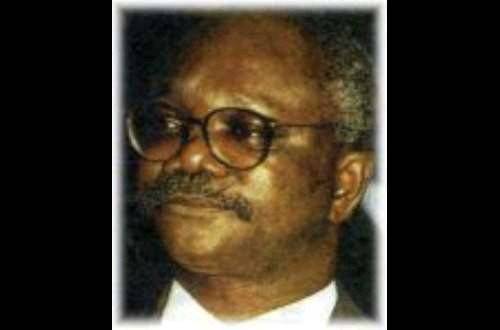Ghana's history is filled with stories of leaders who have shaped the country's destiny, both for better and worse. Among these is the story of Richard Kwame Peprah, a man who once stood tall in the political arena but later became synonymous with scandals and controversies. His journey from a respected leader to a convicted official serves as a lesson about power, trust, and accountability.
Richard Kwame Peprah's early life gave little hint of the controversies that would later mark his career. A former student of the prestigious Achimota School, Peprah was seen as a promising leader. He gained significant prominence during Jerry John Rawlings’ rule, particularly between 1983 and 2001. Known for his charisma and sharp political acumen, he quickly became one of Rawlings’ most trusted allies.
In 1995, Peprah was appointed as Ghana’s Minister of Mines and Energy, a position of great responsibility. His work there was notable, and it wasn’t long before he was promoted to Minister of Finance, a role that placed him at the heart of Ghana’s economic decisions. For many, this was a sign of the immense faith Rawlings had in him. Peprah’s time as Finance Minister came with both praise and criticism, as his actions had long-lasting effects on the nation.
However, Peprah's career took a dramatic turn with a scandal that shook the country. In the mid-1990s, a major project in Ghana’s Volta Region—the Aveyime Rice Project—aimed to boost local rice production. While the project initially seemed like a great idea, it quickly turned into a nightmare for the nation. Credible sources later revealed that Peprah conspired with an American businesswoman, Juliet R. Cotton, to defraud the country. The result was a loss of $20 million to the state, a devastating blow to Ghana’s economy.
The scandal erupted in full force, and the public demanded justice. On April 28, 2003, Justice Dixon Kwame Afreh found Richard Kwame Peprah guilty of conspiracy and causing financial loss to the state. He was sentenced to four years in prison. For many Ghanaians, this was a moment of reckoning—a powerful leader had been held accountable for his actions. But the story didn’t end there. Less than a year into his sentence, on March 3, 2004, President John Agyekum Kufuor decided to remit his sentence, sparking further debate. Some saw this as a gesture of mercy, while others criticized it as a political decision that undermined justice.
Years later, another controversy emerged, further tarnishing Peprah's reputation. In 2017, during his time as Board Chairman of the Social Security and National Insurance Trust (SSNIT), a $72 million software procurement scandal came to light. The project was intended to modernize SSNIT’s operations, but the staggering cost raised many eyebrows. Questions were asked, and fingers were pointed at Peprah. Although the full details of his involvement remain unclear, the scandal added another stain to his legacy.
Peprah’s story raises important questions about leadership and accountability in Ghana. How do leaders entrusted with the country’s resources end up involved in such scandals? Why do such issues seem to persist despite calls for transparency? These are questions that continue to haunt Ghanaians as the nation strives to build a better future.
The case of Richard Kwame Peprah is not an isolated one. It reflects a broader problem in Ghana’s political system, where corruption and financial mismanagement often go unchecked. For many citizens, it’s disheartening to see public officials abusing their positions of power for personal gain while the majority struggle with basic needs like education, healthcare, and infrastructure.
But Peprah’s story is also a call to action. It reminds us that as citizens, we must demand accountability from our leaders. We cannot afford to sit back and watch as a select few misuse public funds while the nation suffers. Ghanaians must push for stronger laws and systems to prevent corruption and ensure that those who break the rules face the consequences, no matter how powerful they may be.
As Ghana continues to grow as a democracy, the lessons from Peprah’s rise and fall should guide the nation. Leadership is not just about holding positions of power; it’s about serving the people with integrity and honesty. For future leaders, Peprah’s story should serve as a cautionary tale—a reminder that the misuse of power can lead to disgrace and harm to the very people they are supposed to serve.
In the end, the story of Richard Kwame Peprah is one of potential and betrayal. It shows how trust, once broken, can have lasting consequences. But it also offers hope that with the right systems in place, Ghana can overcome these challenges and build a brighter future for all its citizens. The choice lies in the hands of the people, who must demand better from their leaders and hold them accountable for their actions.



No comments yet
Be the first to share your thoughts!